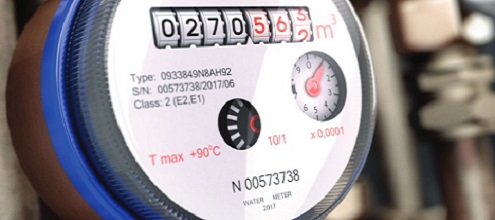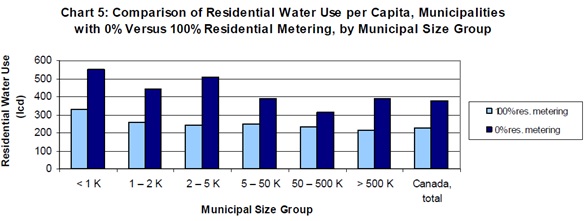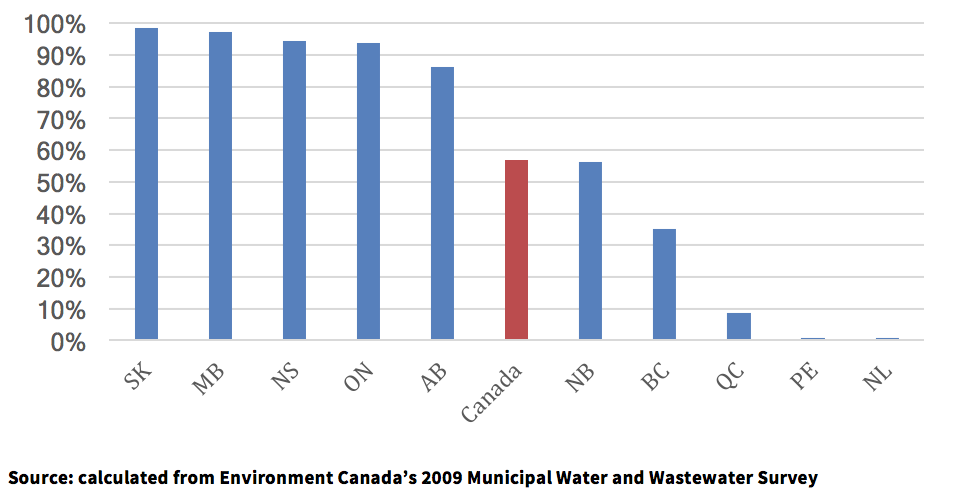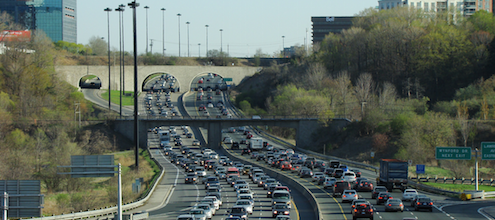
The benefits of water meters: We can’t manage what we don’t measure
Measuring our water consumption is fundamental to sustainable water management. Water meters provide municipal water utilities with vital information on how, when, and where we use water. They also allow municipalities to charge based on how much water we use. For these reasons and more, installing water meters is Best Practice #1 in our recent report, Only the Pipes Should be Hidden. This blog goes deeper into the benefits—and costs—of installing water meters.
An old technology with proven benefits
The benefits of water meters are well documented (see, for example, here and here). Water meters allow municipal water utilities to measure consumption over time and space, and across different users. This information allows water utilities to more accurately and quickly identify and repair leaks. The Sunshine Coast Regional District in B.C., for example, used information from meters to identify and fix over 1000 leaks, saving about one million litres per day from being wasted.
Water meters also help with planning long-term capital upgrades, and identifying areas to improve system efficiencies. Smart meters have additional benefits, providing real-time feedback to utilities and water consumers.
And perhaps most importantly, water meters are necessary to charge volume-based water rates, which can drive conservation. Research by Statistics Canada, for example, suggests that Canadian households paying volume-based rates use 65% less water than unmetered households with fixed rates (see figure).

Water meters are still uncommon in some municipalities
Although water meters are more common than ever, household water meters are still rare in some Canadian municipalities (see figure). 
Rates of household metering are particularly low in Newfoundland and Labrador, Prince Edward Island, Quebec, and parts of British Columbia. By contrast, households in the Prairies, Ontario, and Nova Scotia have had meters for decades.
Metering is more common for industrial, commercial, and institutional (ICI) water users, but there is still room for improvement. Less than 70% of small businesses had meters in communities with populations under 10,000 in 2009. In Montreal, roughly half of ICI water users have meters, with the goal of full coverage by 2022.
Upfront costs… with benefits over time
Why are some municipalities slow to install water meters if the benefits are well established?
The big reason is the upfront cost. The cost of purchasing and installing water meters can be anywhere between $200 and $1,000 per connection. The cost of upgrading to smart meters in Halifax, for example, will cost about $25 million or roughly $300 per connection. Costs are typically a bigger barrier in small communities with narrower revenue bases.
Yet experiences from across the country suggest that the long-term benefits outweigh these costs. Estimates suggest that upgrading to smart meters in Halifax will save the utility about $1 million per year. The cost of installing meters in Toronto was $168 million, with annual savings of $33 million for the utility—a payoff period of seven years.
Small municipalities can also benefit. The decision to purchase and install water meters in the town of Stratford, PEI, for example, is expected to help reduce leaks and save the utility and ratepayers money over their lifecycle. And in cases where funding is a bigger challenge, small communities are leveraging provincial and federal grants to offset the upfront costs.
Municipalities are also sometimes hesitant to install water meters because the benefits—unlike the costs—are difficult to quantify. Municipalities depend on cost-benefit analyses to justify installing water meters. Yet estimating avoided damages to local watersheds or deferred spending on infrastructure, for example, is complicated.
Meters, meters everywhere
We live in a data-driven age. We measure most of what we consume and operate. Gasoline, electricity, data usage. You name it, it’s measured and managed. Water—our most precious resource—should be no different.
Water meters are fundamentally about improving how municipalities measure and manage their water and wastewater. Benefits are both environmental and financial, and extend long into the future. Providing proper consideration of these benefits, water meters are often a no-brainer. They are essential to managing municipal water systems sustainably and set the table for our nine other Best Practices.
Online course: Municipal market-based tools for sustainable development Sign up now for this new and unique Ecofiscal course, designed for municipal employees. Launching Fall 2018!




Comments are closed.